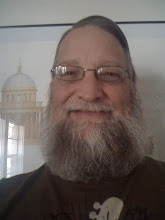~~~~~~~~~~~~~~~~~~~~~~~~~~~~~~~~~~~~~~~~~~~~~~~~
In my last post I ended by posing a few questions about the intent of the Founders in regards to Constitutionality. If you haven't read that post you should read it before moving on here. The first of the questions queried whether our Founders intended for the Supreme Court to be the last stop in determining whether something is Constitutional. The prima facie evidence is overwhelming that they did not at all intend such. Indeed, the evidence is that they purposely applied no such authority to any of the three branches. What on earth were they thinking? How could our revolutionary fathers leave us in the lurch by not assigning final Constitutional authority with one branch of government? Asking the question answers it.
Perhaps it is useful to revisit another question; exactly what is the U. S. Constitution? It is a compact between the Several States to allow a federal government to act in their behalf with a set of enumerated powers for the express purpose of protecting the Peoples individual rights and Liberties, specifically the right to Life, Liberty and Property. And they also state, and this is key, that any powers not specifically given are reserved to the Several States and the People. The most vital thing to understand about the founding of this nation is that one thing drove everything else. One thing consumed every argument and every decision our Founders made in setting up this government. That thing is the Liberty of the individual to live their lives, practice their faith, express their opinions, accumulate property, enhance their prosperity and raise and protect their family as they see fit without any intervention from outside authority. The only limiting factor is whether you infringe in some way on another's right to do the same. Other than that, We the People are intended to be free to do as we wish. This is why the Founders also warned us repeatedly that this type of freedom is wholly inadequate for any but a virtuous and educated people.
The next item that must be elucidated is the means with which the framers of the Constitution chose to attain this goal of protecting the People's rights above all else. That device is at once complicated and simple as is the Constitution itself. Simple in the concept of three diverse branches with checks and balances to preserve co-equal power. Complicated in the mechanisms of sharing authority in such a way as to incentivize checking the power of the others. In other words, the Founders intentionally allowed it to be ambiguous to preserve the power of each branch to be independent. The nuanced reason for this is that the Founders intended for the final arbiter of all things Constitutional to actually be the States and the People themselves. For the States entered into this compact and the States can dissolve it. These men were very savvy however, and they understood that interpretation of law was necessarily going to devolve to the judicial branch. But none other than the Father of the Constitution, James Madison warned against allowing this while debating in the first session of the House of Representatives in 1789; "But I beg to know, on what principle it can be contended that any one department derives from the Constitution greater powers than another in declaring what are the true limits of the Constitution." As the quote in the previous post proves, Thomas Jefferson shared this view.
While they clearly understood that the Constitution was the Supreme Law and as such it fell naturally into the purview of the courts, they admonished the other branches to be bold in their exercise of their own power to decide what is Constitutional. Jefferson warned in a letter to Mr. Jarvis in 1820 that allowing judges to be the final arbiters of all things Constitutional would be, "...a very dangerous doctrine indeed, and one which would place us under the despotism of an oligarchy." He also stated in another letter that against this possibility, "...every man should raise his voice, and more, should uplift his arm."
Any reasonable reading of the Founders shows unequivocally that they felt that the final arbiter of constitutionalism is the People through the election of leaders. Imagine their horror as they look down on America from Heaven and see the fate of 100's of millions of Americans being debated amongst nine unelected judges, one of which recently told Egyptians not to use the American Constitution as a basis to write their own, because it is old and relies too heavily on the People and not the government.
So, clearly even a rudimentary study of the Founders shows that they did not intend for the Supreme Court to have the final say so in what is or isn't constitutional. Well then, what did they intend? We will explore this further in my next post, but suffice it to say for now that they intended that We the People would be vigilant in forcing the politicians to respect our Constitution and thereby our rights. It is truly educational to note that even though the framers included the power to impeach SCOTUS justices, and that the Constitution states they may hold office during 'good Behaviour', only one Supreme Court justice has ever been impeached, Samuel Chase (1805); no matter how brazenly they may have broken their solemn oath to '...support and defend the Constitution of the United States of America...'
by: Keith D. Rodebush
April 1, 2012
Subscribe to:
Post Comments (Atom)

No comments:
Post a Comment